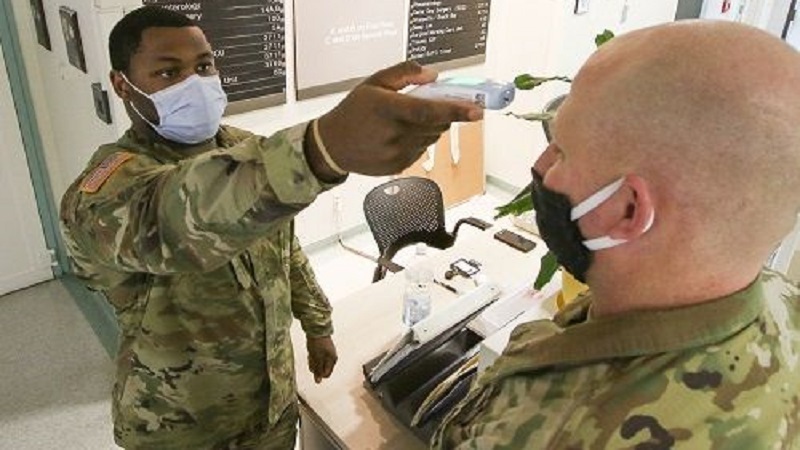Just as the COVID-19 pandemic has forced changes in how civilian companies are operating, veteran service organizations have also adapted how they deliver support services, according to a military newspaper op-ed piece.
"Elderly veterans, just like in the civilian population, are particularly vulnerable to this virus," said the May 19 Military Times commentary piece penned by Amy Palmer, president and CEO of Soldiers’ Angels, a nonprofit group helping the military, veterans, and their families. "Coronavirus claimed the lives of at least 80 veterans at an elder care facility in Massachusetts, accounting for at least one third of its residents. Recent news reports also revealed the devastation at New Jersey Veterans Home at Paramus, where 74 former members of the U.S. military died of COVID related illnesses."
The piece also referred to U.S. Department of Veterans Affairs reports that the rate of COVID-19 cases among veterans is falling, though the death rate continues to rise. The U.S. Department of Housing and Urban Development estimates that 40,056 veterans are homeless "on any given night," and the National Coalition of Homeless Veterans reports that about 1.4 million other veterans "are considered at risk of homelessness due to poverty, lack of support networks, and dismal living conditions in overcrowded or substandard housing," the op-ed said.
"At the same time, while VA hospitals are working around the clock to ensure the safety and health of their patients, COVID-19 has cut off much of the traditional volunteer support provided to veterans inside their facilities," the op-ed piece continued.
For these reasons and others, veteran service organizations have adapted to better provide services to the most vulnerable of veterans, Palmer wrote.
"Rather than waiting for policies to become less restrictive, we have shifted our tactics so that veterans and their caregivers get the support they need now — when they need it most," according to Palmer.
In many cases, veterans are provided with tablets and devices to chat with loved ones outside care facilities and homeless COVID-19 positive veterans are receiving medical transportation to designated quarantine housing facilities.
"We are continuing to provide supplies and support to deployed service members in their fight against COVID around the country, like the Texas National Guard who deployed to help to disinfect VA nursing homes to reduce the spread of COVID-19," Palmer wrote.


 Alerts Sign-up
Alerts Sign-up